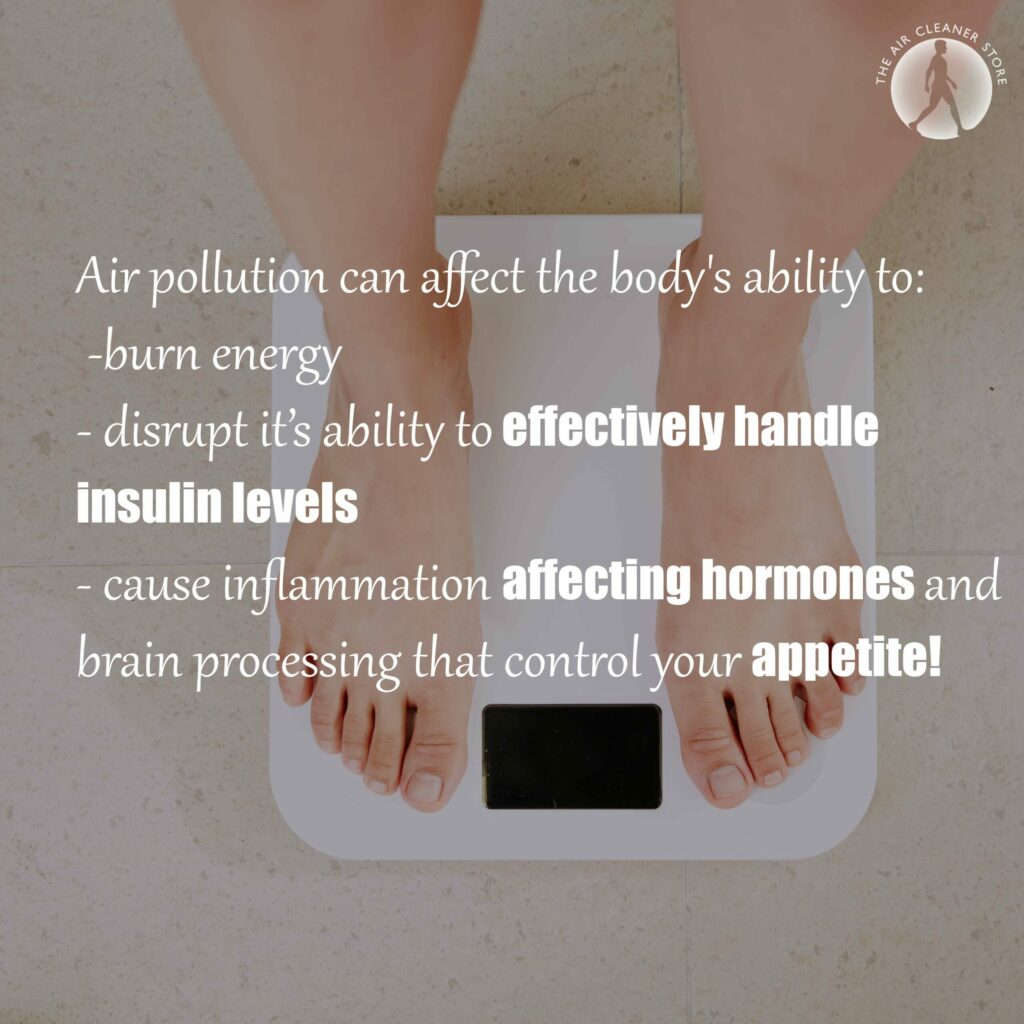The notion that breathing “thin air” can make you fat seems absurd, but studies indicate that it is true. Two dieting individuals that consume the same food and perform the same exercises may get completely different results from their efforts. Air pollution around the home can have negative effects on metabolism over time and cause weight gain.
Pollutants interfere with appetite regulation
Exposure to air pollution can cause a 13.6 percent rise in body mass index (BMI). According to research at The University of Berkley, air pollution can interfere with your appetite-regulating hormones. Here is how that happens:
The main sources of concern are traffic fumes, VOCs, cigarette smoke, ozone levels, and PM (Particulate Matter) which contain small, irritating particles that cause widespread inflammation and impair the body’s ability to burn energy. Contaminants most responsible for disrupting metabolic activity are small particles, or PM2.5, and ultrafine particles, particles measuring less than 0.1 microns in diameter.
These contaminants have been found to irritate the alveolar lining of your lungs, which normally help oxygen to move through your bloodstream. As a result, the alveoli release hormones that reduce the effectiveness of insulin, divert blood away from insulin-sensitive muscle tissue and prevent the body from adequately controlling blood sugar levels.
Additionally, particle pollution may cause your body to release more inflammatory molecules called “cytokines” into your bloodstream, causing immune cells to invade otherwise healthy tissue.
This reaction not only interferes with your tissue’s ability to react to insulin, but the resulting inflammation can also affect the hormones and brain processing that control your appetite, according to a study published in Environmental Health. This can make you feel hungry even though you’ve had enough to eat.
The Bottom Line
Air pollution is an important health issue that needs to be addressed on local, state, national international levels. Addressing global air pollution is our collective responsibility. In addition, you can regulate your own indoor air quality and start making meaningful changes in your life right now.
A healthy diet and regular exercise are still the most important keys to success in your weight loss journey, but fresh air can also help to boost your physical and mental health.
Here are some steps you can take to control air pollution around you:
- Air out your home frequently.
- Clean your home regularly.
- Invest in a high-quality air cleaner.
- Regularly check the AQI- Air Quality index in your city and limit spending time outdoors if the pollution index is high.
- Maintain your indoor ventilation system.
- Monitor the combustion of indoor heating and cooking fuels.
- Install smoke and CO2 detectors.
- Take your smoking habit’s outside. Better yet, quit smoking altogether.
